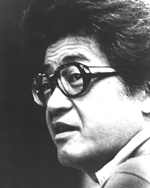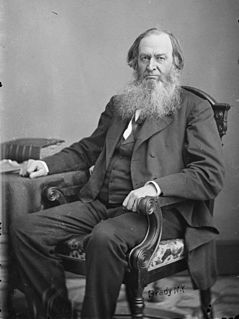A Quote by Hippolyte Taine
To have a true idea of man or of life, one must have stood himself on the brink of suicide, or on the door-sill of insanity, at least once.
Related Quotes
...we ask: Why suicide? We search for reasons, causes, and so on.... We follow the course of the life he has now so suddenly terminated as far back as we can. For days we are preoccupied with the question: Why suicide? We recollect details. And yet we must say that everything in the suicide's life- for now we know that all his life he was a suicide, led a suicide's existence- is part of the cause, the reason, for his suicide.
The Door Without a Key is the Door of Dreams; it is the door by which the sensitive escape into insanity when life is too hard for them, and artists use it as a window in a watch-tower. Psychologists call it a psychological mechanism; magicians call it magic, and the man in the street calls it illusion or charlatanry according to taste. It does not matter to me what it is called, for it is effectual.
Pain and pleasure, like light and darkness, succeed each other; and he that knows how to accommodate himself to their periodical returns, and can wisely extract the good from the evil, knows only how to live: this is true contentment, at least all that is to be had of it in this world; and for this every man must be indebted not to his fortune, but to himself.
Suicide is an escape from life. What is life? An escape from death. This means that each of us must die twice. There is the death waiting for us ahead, and the death that comes pursuing from behind.... Once you are free at least from the death that comes pursuing you, you can relax and enjoy life as you go along.
I was tired of an outlaw's life. I have been hunted for twenty-one years. I have literally lived in the saddle. I have never known a day of perfect peace. It was one long, anxious, inexorable, eternal vigil. When I slept it was literally in the midst of an arsenal. If I heard dogs bark more fiercely than usual, or the feet of horses in a greater volume of sound than usual, I stood to arms. Have you any idea of what a man must endure who leads such a life? No, you cannot. No one can unless he lives it for himself.
Innately, children seem to have little true realistic anxiety. They will run along the brink of water, climb on the window sill, play with sharp objects and with fire, in short, do everything that is bound to damage them and to worry those in charge of them, that is wholly the result of education; for they cannot be allowed to make the instructive experiences themselves.
If any man would come after me, let him deny himself." The disciple must say to himself the same words Peter said of Christ when he denied him: "I know not this man." Self-denial is never just a series of isolated acts of mortification or asceticism. It is not suicide, for there is an element of self-will even in that. To deny oneself is to be aware only of Christ and no more of self, to see only him who goes before and no more the road which is too hard for us. Once more, all that self denial can say is: "He leads the way, keep close to him.
God himself was once as we are now, and is an exalted man, and sits enthroned in yonder heavens! That is the great secret.... It is the first principle of the Gospel to know for a certainty the Character of God, and to know... that he was once a man like us.... Here, then, is eternal life - to know the only wise and true God; and you have got to learn how to be Gods yourselves... the same as all Gods have done before you.




































